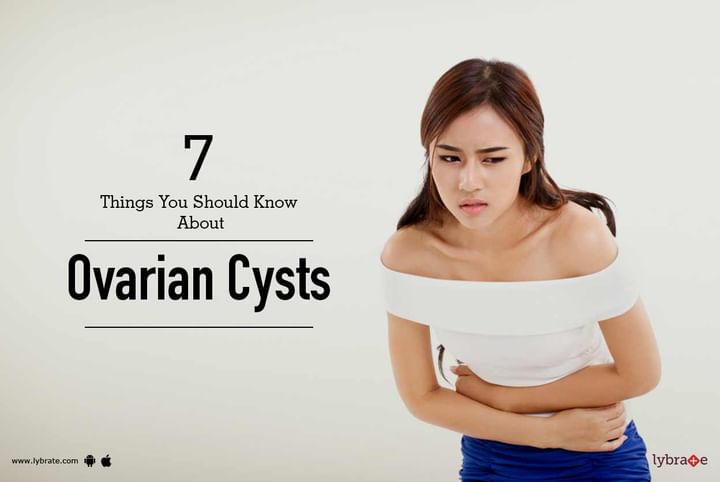7 Things You Should Know About Ovarian Cysts
Ovarian cysts are fluid-filled sacs that develop on a woman's ovary. A patient might experience abdominal and pelvic pain, abnormal bleeding, menstrual irregularities, pain during intercourse or irregular bowel movements. These symptoms indicate an ovarian cyst developing inside you. Ovarian cysts are common in women and may develop during menstruation. In many cases, symptoms are not observed, and you may get ovarian cysts without knowing. Usually being harmless, ovarian cysts may sometimes lead to severe health conditions.
Here are 7 important things you should know about ovarian cysts:
- You should know the reason behind the formation of ovarian cysts. When the follicle does not release the egg, it may grow bigger in size and take the form of a follicular cyst. A corpus luteum cyst may also develop, which is a cavity that gets formed after the egg is ruptured and released from the follicle. The cysts may bleed and cause pelvic pain.
- It is important for you to know if you have an ovarian cyst. Many ovarian cysts do not show symptoms and go away by themselves. Follicular cysts do not change your menstrual cycle, but corpus luteum cysts may cause bleeding.
- You should know how to detect an ovarian cyst. You should visit a gynecologist regularly for diagnosis. Bigger cysts can be diagnosed via a pelvic examination. Ultrasound is also used for detection.
- You should have an idea about all the symptoms associated with ovarian cysts. These include fever, nausea and vomiting. These symptoms indicate that you have an infection. Sometimes, a cyst might twist an ovary, which may cut off blood supply to the ovary, causing permanent damage.
- In case you are at a risk of twisting of the ovaries, you have to undergo a surgery. Surgery is also considered when the cyst lasts longer than three menstrual cycles and it is bigger than four inches in size. The cyst may also pose the risk of being a tumor. The common surgical procedures for ovarian cysts are laparoscopy and laparotomy.
- You can prevent ovarian cysts be taking birth control pills, which help in suppressing ovulation and prevent the formation of a cyst. Birth control pills may help only if you are not pregnant.
- Ovarian cysts are more common in premenopausal women. However, these are possible in postmenopausal women as well, especially in the early postmenopausal stage.
Sometimes, there might be chances of an ovarian cyst being cancerous in nature, which may lead to ovarian cancer. The risk of cancerous ovarian cysts increases with age. It is recommended to consult a gynecologist for the proper diagnosis and treatment of ovarian cysts in women. Pain medications and heating pads are used as alternative treatment methods for less serious ovarian cysts.
In case you have a concern or query regarding gynaecological issues, you can consult a gynaecologist online & get the answers to your questions through online doctor consultation via video call.



+1.svg)
